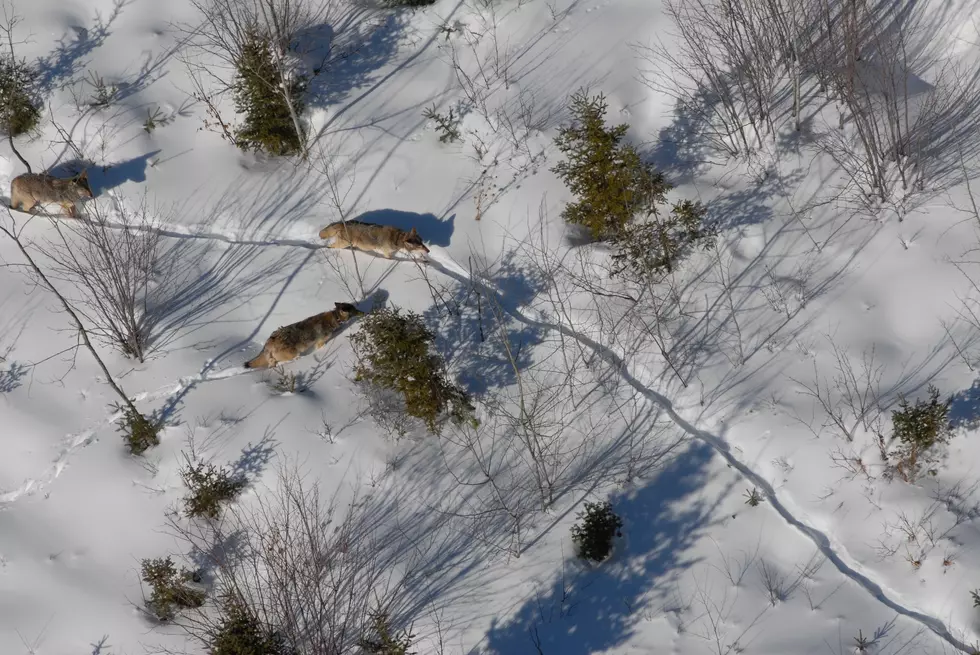
No Significant Change in Michigan’s Upper Peninsula Wolf Population
Last week, the Michigan Department of Natural Resources wildlife division announced the size of the state’s wolf population has not changed significantly since the last survey was conducted in 2014.
DNR wildlife researchers estimate there was a minimum of 618 wolves in the Upper Peninsula this winter. The 2014 minimum population estimate was 636 wolves.
“The confidence intervals of the 2014 and 2016 estimates overlap, thus we can’t say with statistical confidence that the population decreased”, said Kevin Swanson, wildlife management specialist with the DNR’s Bear and Wolf Program in Marquette.
Swanson said, based on the 2016 minimum population estimate, it is clear that wolf numbers in Michigan are viable, stable and have experienced no significant change since 2014.
“While the survey is primarily a track survey, when available, we also use aerial counts of packs that contain radio-collared animals. In addition, the movement information we collect from the radio-collared wolves helps us interpret the track count results,” said Dean Beyer, a DNR wildlife researcher in Marquette. “Taken together, these methods allow us to estimate the minimum size of the wolf population. In 2016, approximately 63 percent of the Upper Peninsula was surveyed."
Wolves returned naturally to the U.P. in the 1980s, through migration from Minnesota, Wisconsin and Ontario. The population rebounded until recent years when growth began to level off. Over the past few years, Michigan's minimum population estimate has hovered between 600 and 700 wolves.
Recent Wolf Management Changes
In January 2012, citing wolf recovery in the region, the U.S. Fish and Wildlife Service took gray wolves off the federal endangered species list in Michigan and Wisconsin and the threatened species list in Minnesota.
The ruling allowed Michigan, Minnesota and Wisconsin to manage wolves according to their wolf management plans.
The 2008 plan, which the Department updated in 2015, allowed for lethal means to control a limited number of wolves each year where conflicts had occurred. Michigan law allowed citizens to kill wolves that were actively preying on their hunting dogs or livestock.
However, Michigan’s laws on wolf depredation and the ability of wildlife managers to use lethal means, including hunting, to control wolves was suspended in December 2014, after a ruling from the U.S. District Court in Washington, D.C.
In a lawsuit challenging the federal delisting, the court ruling found in favor of the Humane Society of the United States, ordering wolves returned to federal protection. Wolves have since remained classified as an endangered species in Michigan and Wisconsin and threatened in Minnesota.
Because of the federal endangered species status, Michigan citizens may only legally kill a wolf in defense of human life.
After the court’s finding, Michigan, Wisconsin, some private groups and the U.S. Fish and Wildlife Service appealed the decision late last year. The court has not yet released a timeline of its deliberations.

